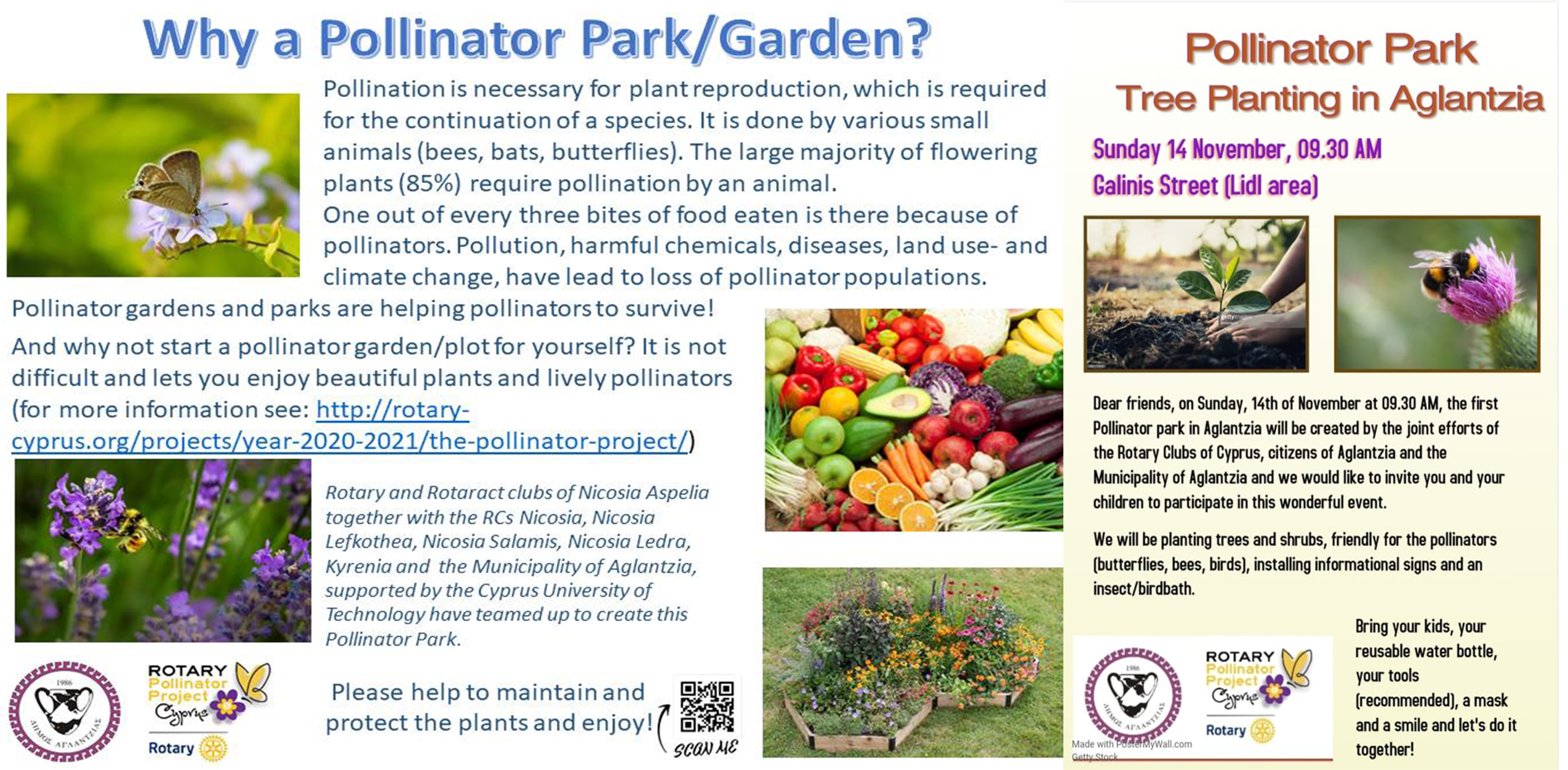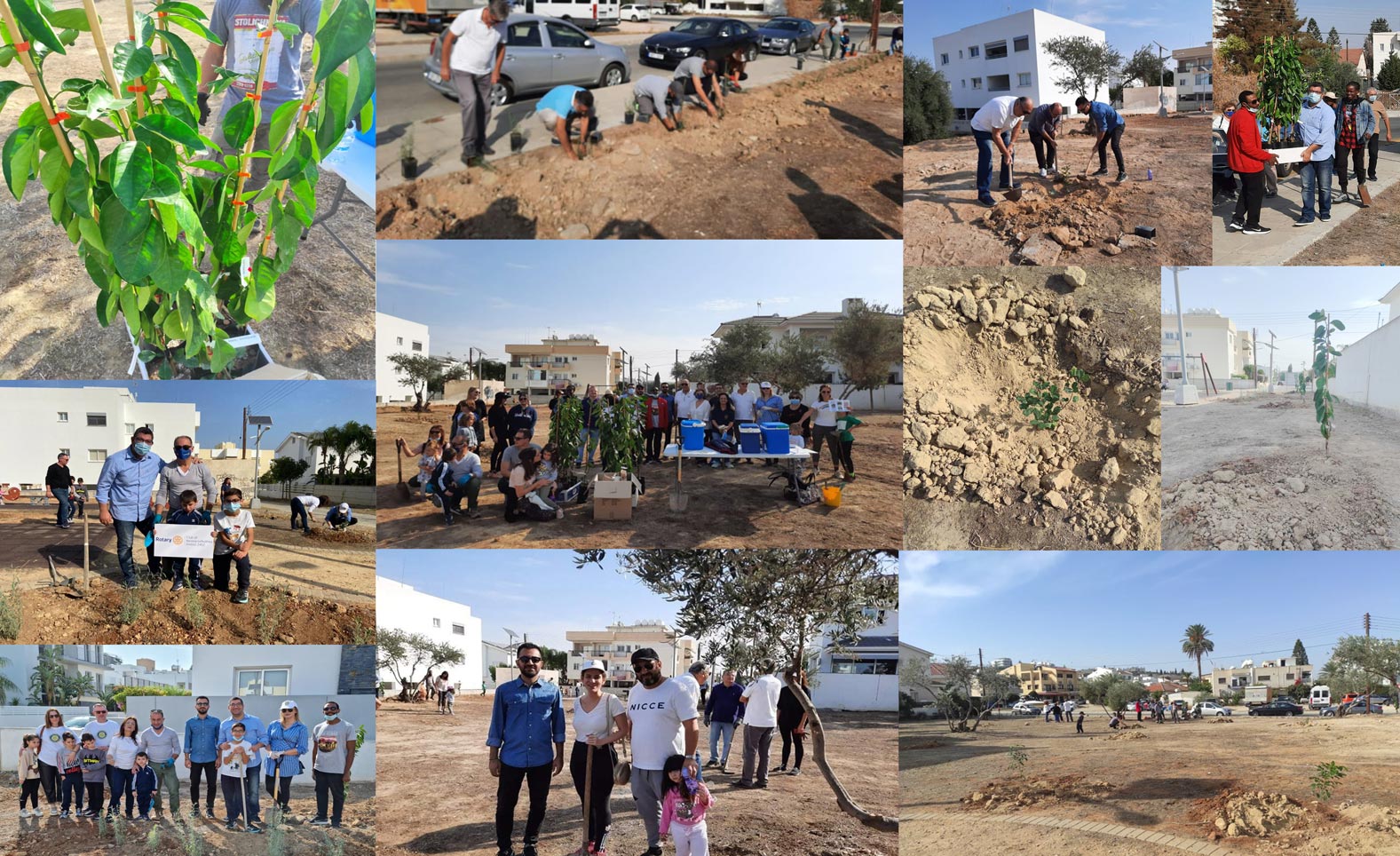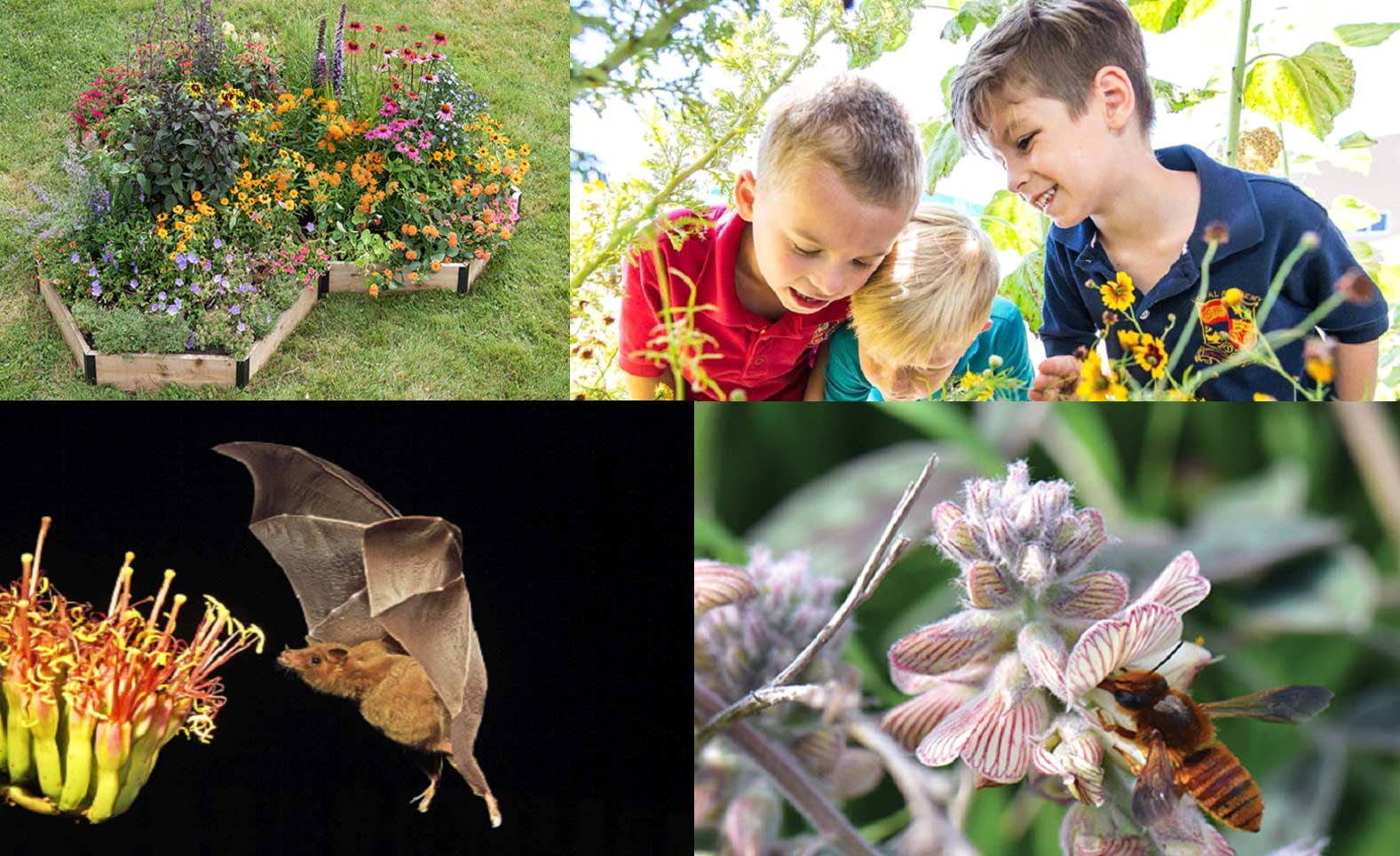THE POLLINATOR & ENVIRONMENTAL PROTECTION TASK FORCE OF ROTARY CYPRUS
The Pollinator Project of ROTARY Cyprus (Climate Change and Biodiversity in Cyprus) – Initialized by the Rotary Club Nicosia Aspelia in close cooperation with the ROTARACT Clubs Nicosia Aspelia and the University of Nicosia was launched in February 2021 during the Cyprus Rotary’s celebration of the 116th RI Birthday anniversary.
The project is run by an Environmental Task Force of ROTARY Cyprus involving the ROTARY Clubs: Kyrenia, Kyrenia Cosmopolitan, Kyrenia Liman, Kyrenia St Hilarion, Limassol, Limassol Kourion, Nicosia, Nicosia Aspelia, Nicosia Ledra, Nicosia Lefkothea, Nicosia Salamis, Nicosia Sarayionou, Paphos Aphrodite and the Cyprus University of technology and the ROTARACT Clubs: Nicosia Aspelia, University of Nicosia/sponsored by RC Nicosia Aspelia.
Presentations in English and Greek about the importance of pollinators to humans and the environment.
Flyers about the Pollinator Project in English, Greek and Turkish.
The project has been entered as a Rotary Showcase Project at Rotary International
https://map.rotary.org/en/project/Pages
The 1st Rotary pollinator park in Cyprus was organized by the Rotary and Rotaract clubs of Nicosia Aspelia in cooperation with the Aglandjia Municipality the Cyprus University of Technology and all the Nicosia Rotary clubs. The tree planting took place on the 14th of November 2021.
Pollination in Action

Aglantzia Municipality is getting even Greener!
Now it also has a Pollinator park. 🐝🌱 🌿 ☘️ 🍀 🐝
Click for more!

Rotarians with the Mayor of Aglandjia
How to get involved?
As an individual: Start your own pollinator garden plot
As a ROTARY club: support the creation and maintenance of municipal or school pollinator plots
As a school: make pollinator gardens part of your biology curriculum
As a municipality: initiate, set up, and sustain community pollinator gardens or pollinator parks
What is pollination and why is it important?
Pollination is an essential part of plant reproduction and is required for the continuation of a species. Some plants are able to pollinate themselves. A large majority of plants (85%) require pollination by an animal. Pollinators provide pollination services to over 180 000 different plant species and more than 1 200 crops. One out of every three bites of food you eat is there because of pollinators. Pollinators support healthy ecosystems. Pollinators are threatened by climate change and pollution.

Picture credits:
Lower left: Photo by J. Hoffman; National Wildlife Photo Contest; http://www.ucanr.org/blogs/blogcore/postdetail.cfm?postnum=20089
Lower right: Photo by A. Varnava; Varnava et al., 2020
Upper right: Source: https://www.reviewjournal.com/homes/advertising-features/summerlin-supports-school-pollinator-gardens-1979809/
What are the main pollinator species?
Pollinator animal species include (main species in bold): Ants, Bats, Bees, Beetles, Birds, Butterflies, Flies
What are the threats to pollinators and how can we protect them?
Cyprus, similar to other parts of the Mediterranean is undergoing rapid and intense changes in climate. Rising temperatures and decreasing rainfall add to the desertification of the island. One of the consequences of desertification is a steady decline in the diversity of plant and animal species, including pollinators. In addition, the extensive use of agrochemicals and pollution from various sources reduce the habitats of pollinator species. What to do? Raise awareness on the value of pollinator species. Protect and maintain pollinator habitats. Create pollinator gardens and parks.
In Cyprus, a number of wild bee species are particularly important for pollination. Some 11 species are only found on the island.
Plants that help pollination.
For more information, please contact
Manfred A. Lange, RC Nicosia Aspelia
Email: m.a.lange@cyi.ac.cy
Phone: +35799052416
DDG 2020-21 Caterina Kalavas, RC Nicosia Aspelia
Email: catherine@cytanet.com.cy
Phone: +35796605208
